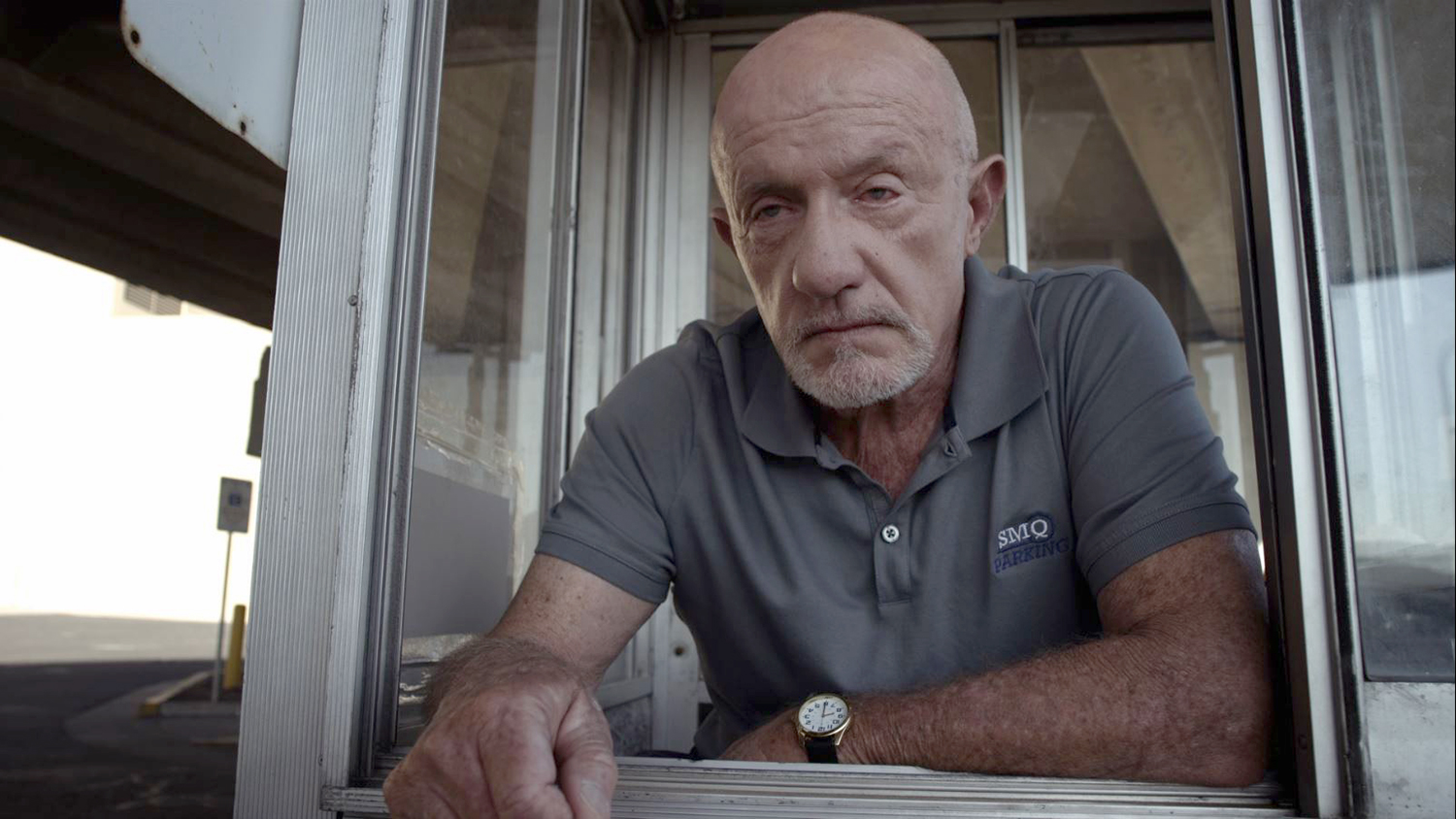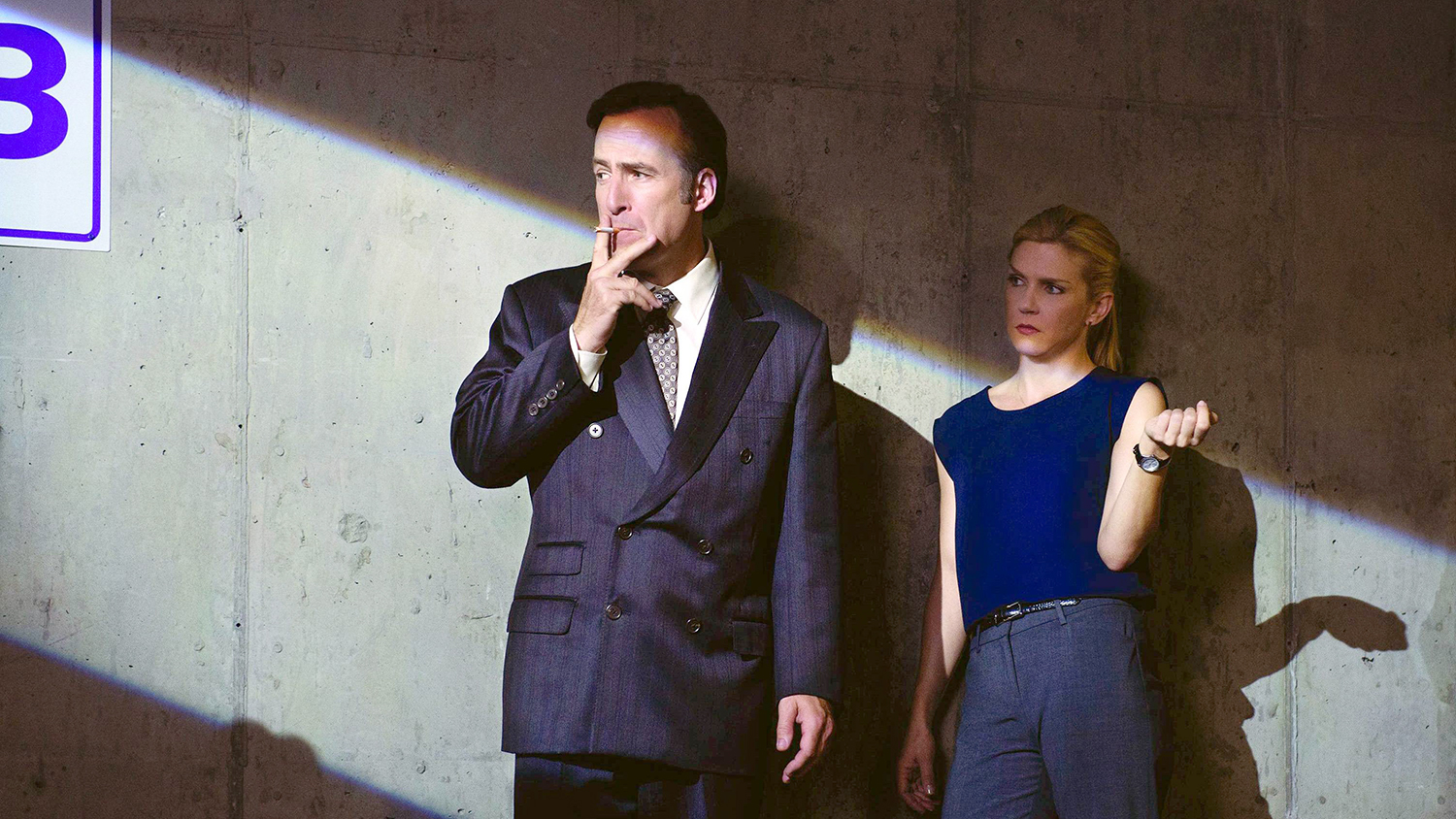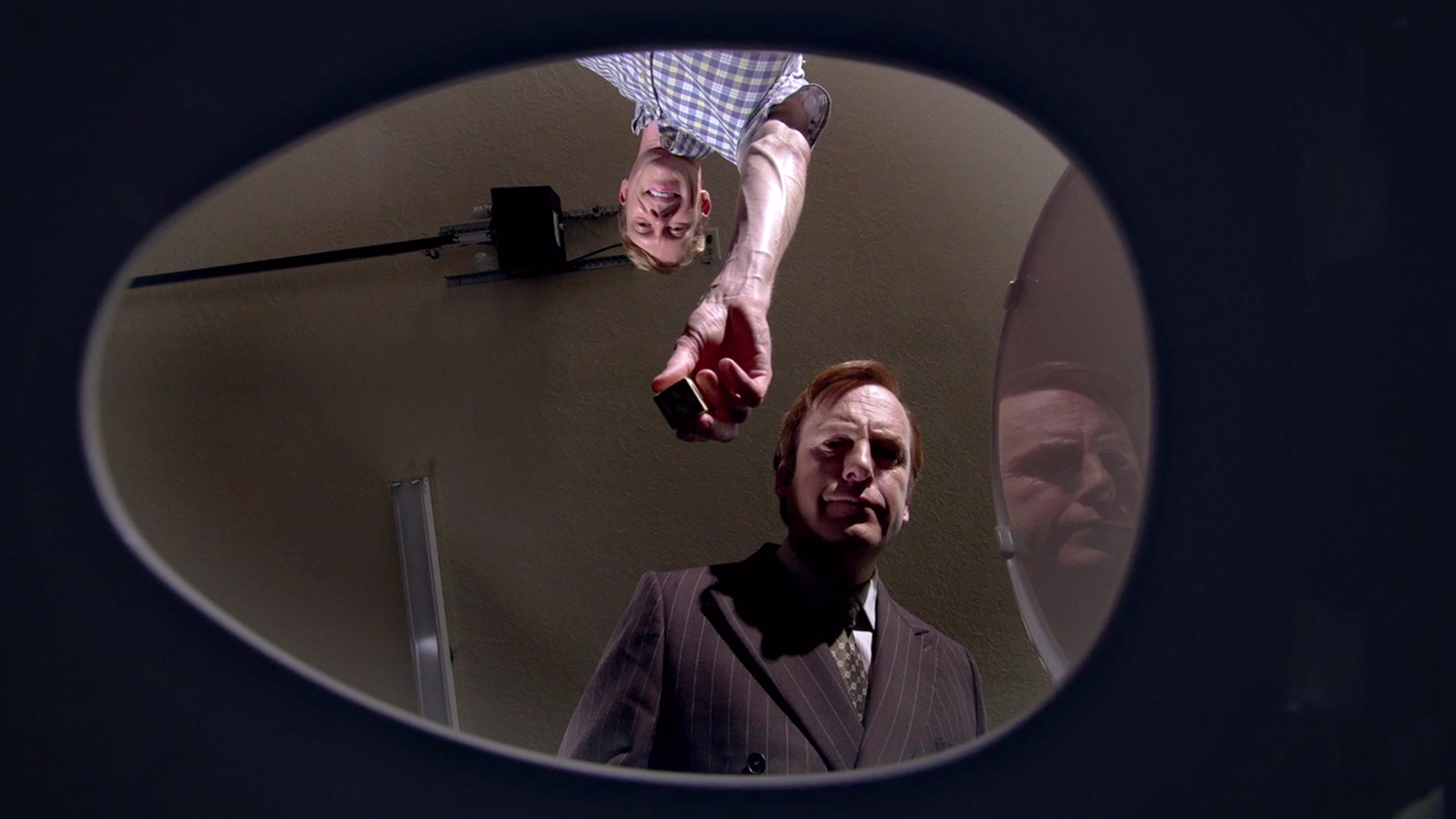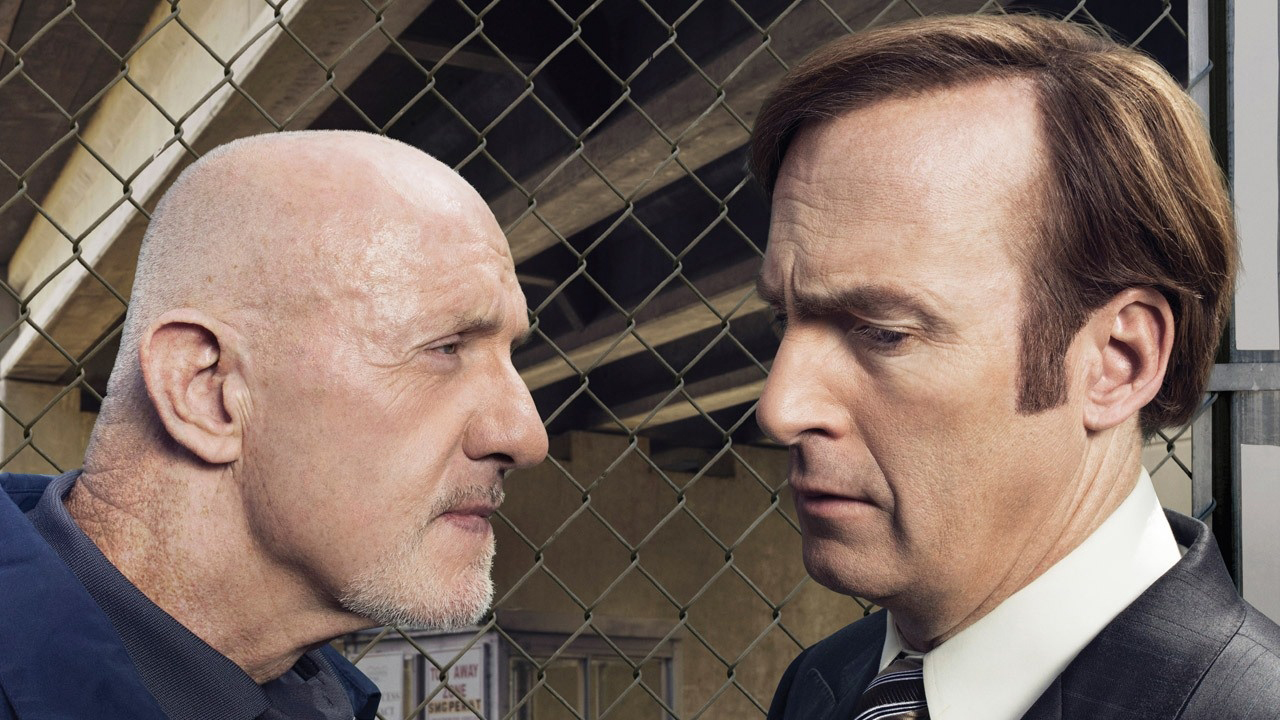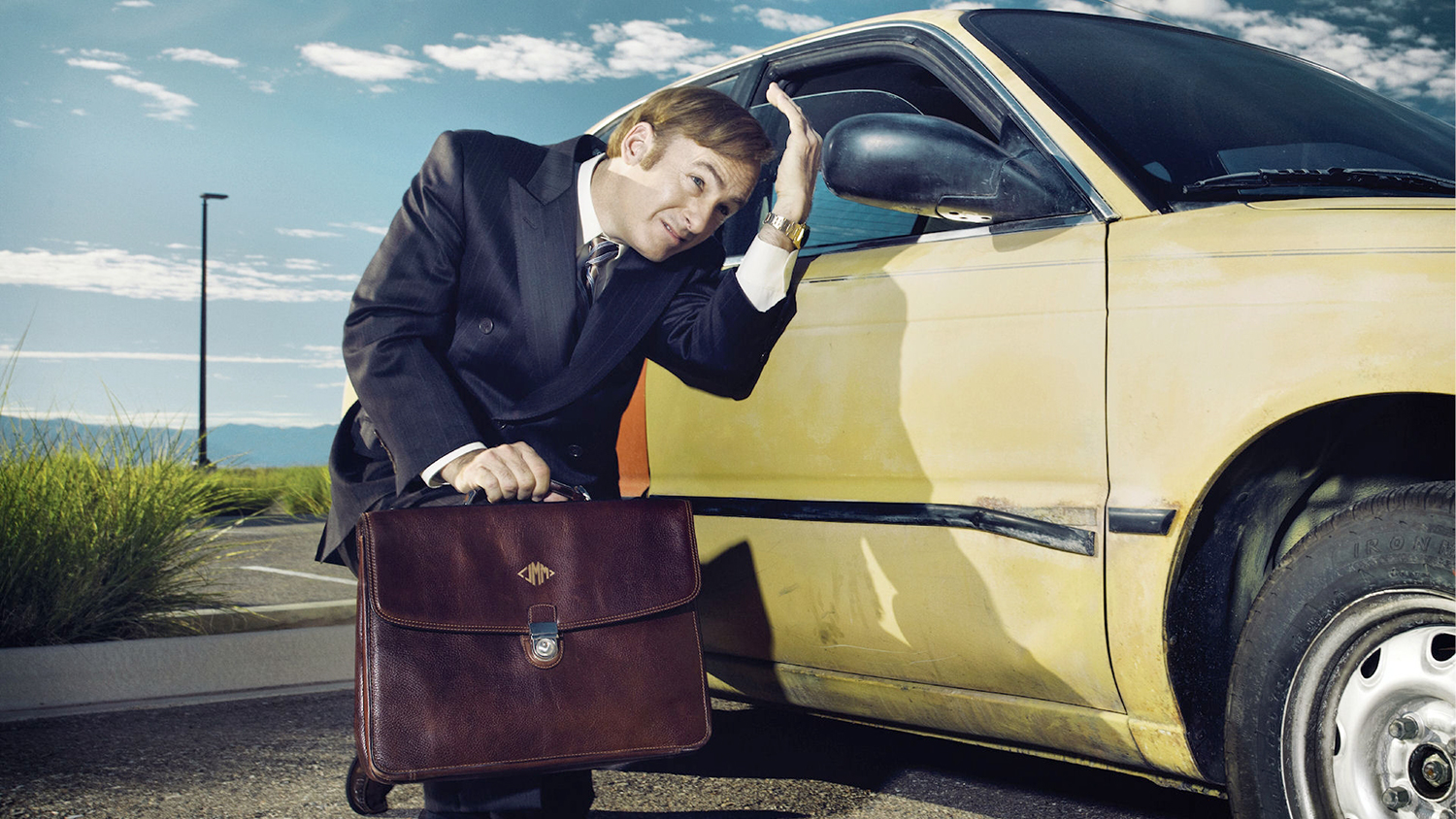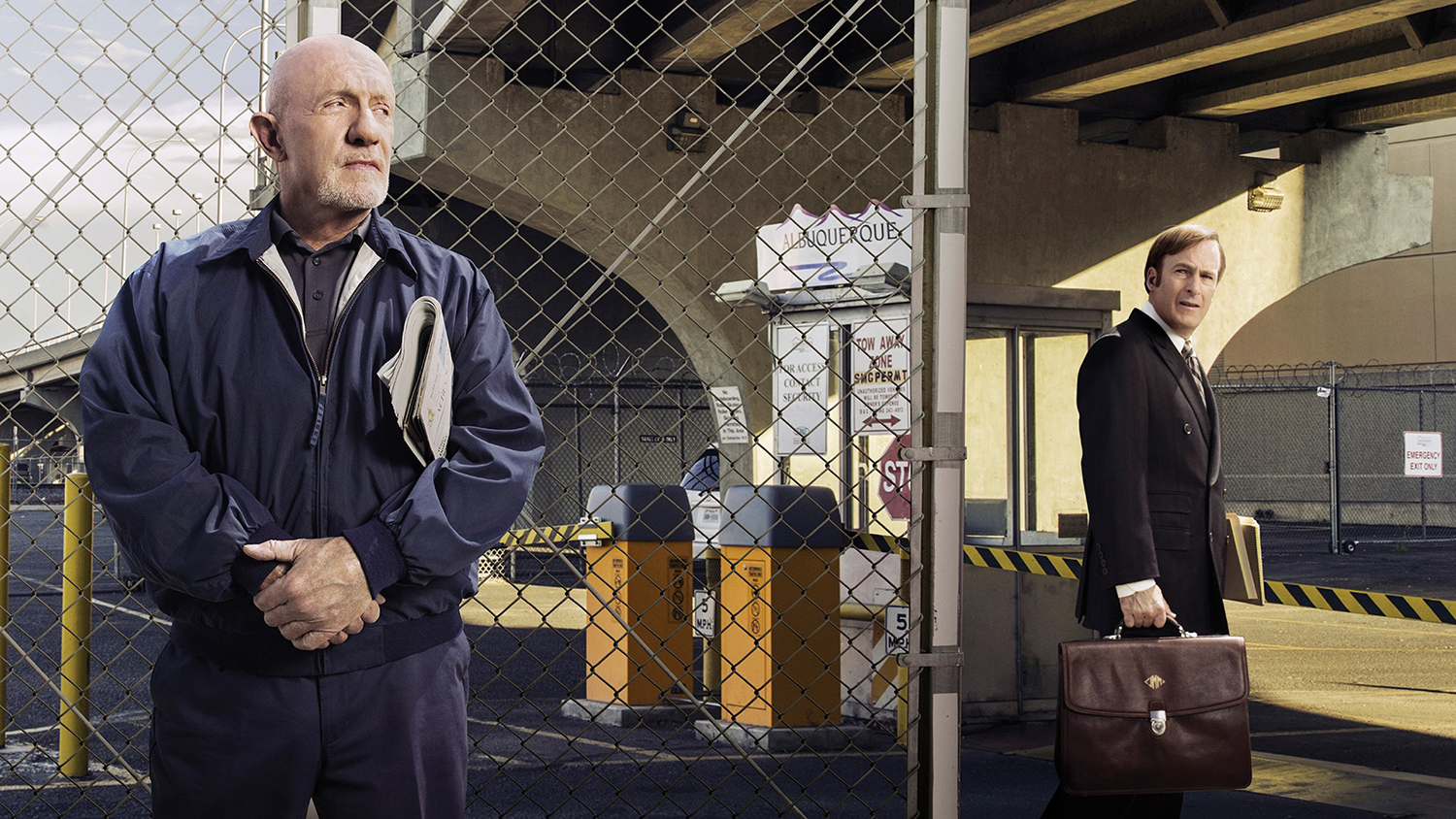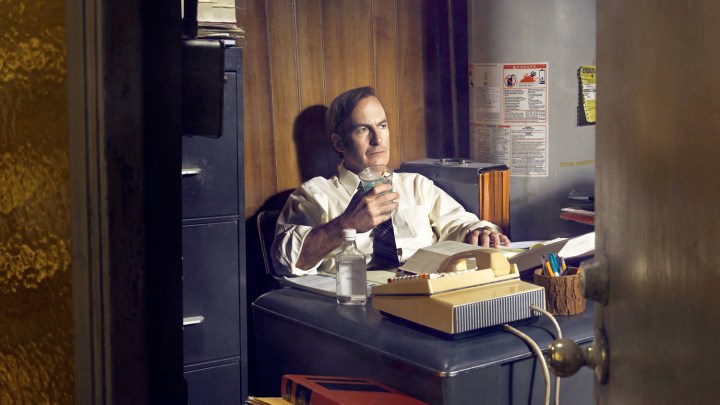
“We’re just trying to make something good that has an integrity and an honesty to it.”
How do you follow perfection? In the case of Breaking Bad, it boils down to three simple words: Better Call Saul. The prequel to AMC’s critically acclaimed drama for the ages debuted to much acclaim earlier this year under the astute guidance of Breaking Bad creator Vince Gilligan and executive producer Peter Gould. But much of Saul’s success is also due to Bob Odenkirk, who brings a level of humanity to Jimmy McGill, the earnest but green Albuquerque lawyer who eventually morphs into Walter White’s outspoken, larger-than-life legal domo, Saul Goodman.
“In the end, Breaking Bad ended up being a deep exploration of a character — Walter White,” observes Odenkirk, “and Better Call Saul is going in that same direction of being about a character mutating and discovering who he is on a deeper level. I can’t believe how many people watched us without prejudice and gave us a chance to create a new scenario in an admittedly very slow way, and let us sort of feel it out.”
Season 1 of Better Call Saul is available today on Blu-ray and digital formats, and the limited collector’s edition box set includes scores of cool extras, including a postcard 45 single with Junior Brown twanging his way through one of Saul’s infamous, bordering on refried-cheesy commercial jingles.
The man is mum on whether we’ll see the emergence of chicken man/drug lord Gus Fring when Season 2 airs in early 2016, but Odenkirk concedes that things definitely continue to heat up. “I do think Season 2 of Saul goes faster, because these writers have a confidence in what they’re writing and who the characters are.” Odenkirk notes. “I hope we find out that Jimmy-slash-Saul is a good guy. I know when he starts, we can feel a lot of empathy for him. But in the case of Breaking Bad, what we found out was Walter White was not a good guy.”
Digital Trends got on the phone with Odenkirk to discuss Saul’s ongoing character evolution, the creative freedom he feels on his new Netflix series with onetime Mr. Show partner David Cross, W/ Bob & David (which begins streaming this Friday, November 13), and who Saul’s first client would be if he went to seek his fortune in Hollywood. Bottom line: It’s all good, man.
Digital Trends: That opening scene in Episode 1 where you’re in your post-Breaking Bad guise as “Gene” at the Cinnabon at the mall in Omaha, Nebraska lets us know Saul is basically looking over his shoulder in every minute of that part of his life. But I also have to ask you: How much do you just love Cinnabon?
Bob Odenkirk: The Cinnabon is made of everything your human body craves. And I’m a human being, so I can’t help but be entranced by the wonders of a Cinnabon.

Are we going to see more of you in that mode, are you allowed to say?
I am not allowed to say. (chuckles)
So what you’re saying is we may or may not see that mustache come back.
Yeah. It may, or it may not. Uh, boy, I don’t know where this show is going!
And you like that, right? As an actor, you don’t want to know.
I love it! I love not knowing. I love being surprised. And I love the time jumps in the show. We can go anywhere. It’s an exploration of character. It’s as simple as that.
How rich is it to play off of Michael McKean as your brother Chuck, and then getting to do even more with Jonathan Banks as Mike Ehrmantraut?
Yeah, it’s all really something to see, and I, um… (pauses) I don’t know what’s going to happen next. I mean, obviously, I know what’s gonna happen in Season 2 since we just finished shooting it, but I still don’t really know where we’re headed. And I think that’s very exciting. It’s a testament to the uniqueness of the story they’ve chosen to tell, and the individuality of that story.
You’re a busy guy who works on a lot of different projects, so you have limited free time. How do you like to watch TV these days?
It’s an exploration of character. It’s as simple as that.
I try to watch shows when they play, but I watch Unbreakable Kimmy Schmidt anytime I want on Netflix. I watch Arrested Development on Netflix a lot — well, I’m rewatching that. I watch Last Man on Earth on Roku, and I watch Fargo on, I don’t know what it’s called…
You mean FX NOW?
No, it’s on Time Warner, and then I get it on my computer. That’s how I watch it — Time Warner FX, through my computer. (slight pause) It’s very weird.
Better Call Saul has a two-screen experience offered by AMC called Story Sync. You can pull it up on your tablet and do things like interact live with other fans about what’s going on in real time. What do you think about watching a show like that?
I don’t know, man; I don’t know. I have a theory that people don’t actually want to interact.
There are some shows I only want to watch in real time with no distractions — shows like Fargo and Better Call Saul, which are both shot so beautifully in real, panoramic locations.
I agree, yeah! Albuquerque on screen is really stunning. And these guys care about every detail. I’ve marveled at the way they’ve been able to take slight plot points and blow them up by focusing on the emotional impact of what’s happening. Even in small interchanges between characters, the small story points. Part of that is the way they shoot, and the way they slow things down. They’re not afraid to slow things down. It’s all about emotional impact.
I also love the sound design of Better Call Saul. How important is the music on the show to you?
Music can change everything about your watching, and Vince Gilligan and Peter Gould have done an amazing job with Better Call Saul of finding interesting, offbeat stuff that lets the show be in its own universe. And that’s the goal. Music is an amazing thing that can turn the whole tide of what you’re watching. It can alter your mood and your perception of what you’re seeing.
I think that Saul has a very sparse sound design, and they’re forcing you to look at character. They’re forcing themselves to write character and not rely on gimmicks of any kind, really, to distract.
What music would Jimmy be listening to while he’s driving around in that wonderful yellow Suzuki Esteem?
You know what pops into my head right away? Whipped Cream and Other Delights.
Cool, a little Herb…
Yeah, Herb Alpert [& The Tijuana Brass]. There’s something bouncy and sexy about it.
That’s nice. And I could see that girl in the whipped cream pile on the album cover maybe doing one of those future Saul commercials, right?
Yes, absolutely! (both laugh)
Will you give Frasier Crane a run for his money and become the longest-running character in basic cable drama?
I’m writing limericks and these guys are writing epic poems.
(laughs) Hah hah! No, I don’t think that will actually happen. I think that they’ll pursue this story hard and it will wrap before it becomes the longest-running. And that’s OK; I’m not competing for longest-running show in any way. We’re just trying to make something good that has an integrity to it.
You’re also a writer. Have you thought about writing an episode of Better Call Saul yourself? Would you want to?
It’s really way out of my wheelhouse. I have no interest in trying to do that. I like that I’m good at a certain kind of writing. I’m writing, you know, limericks (both laugh), and these guys are writing epic poems. I’m very intimidated by epic poems, and I’m really, really happy writing my limericks.
I love the conversation you and Michael McKean have that’s in the Blu-ray bonus material [In Conversation, on Disc 3]. At one point, Michael says there’s an earnestness to how you approach the characters of Jimmy and Saul that grounds the lunacy, if you will.
Yeah, that’s exactly true. The interesting thing is that I think it’s all very honest and true to the human beings, and the way they show different sides of themselves, depending on where they are and what they’re doing. If they’re at the office, they’re a different person than they are at home or if they’re with their mom, or their girlfriend. We all have sort of vastly different selves that we inhabit as we change the scenario around us.
Let’s talk a bit about your upcoming Netflix show with your onetime Mr. Show partner David Cross, W/ Bob & David, You must love the Netflix model of how to make a show your way.
We could only fit doing four episodes into our schedules, and we love Netflix because they are a place of really strong, creative individual voices. And obviously, there are no time limits, which is pretty Goddamned wonderful. You can let the sketch be as long as you want it to be, and let the episode be as long as you want it to be. Some of our episodes are over 30 minutes. Some are 33 minutes, some are 26 minutes, and they’re all different.
And they don’t give you any notes, right? You two guys do what you want, and there isn’t any interference.
Yes, that’s exactly right. Creatively, yes, there is great freedom.
And you’re not forced to make more episodes because of network requirements or contractual obligations, so you gave us four A+ episodes. As a viewer, I prefer that approach.
I’m with you. If we had the time, we would have done six episodes, but David had to go to England to shoot another season of [The Increasingly Poor Decisions of] Todd Margaret.
And the great thing about Netflix is they can use four episodes, or they can use one! Any other place or format you’d try to do that, they’d be real strict about that half-hour number they’re always trying to achieve.
That must open you up creatively for what you might want to do in the future. You can just let it ride.
Yep, that’s right. You can let a sketch run as long as you want. The final episode has a thing called Salesman that runs 8 minutes long. We really loved it. We’re proud of it and really glad to do it — and only because we’re on Netflix.
One more thing about Better Call Saul. Let me put this scenario in front of you: If Stevie Grant met Jimmy McGill, how would that meeting go?
Music is an amazing thing that can turn the whole tide of what you’re watching.
Well, that would be fun to do. Stevie Grant would take Jimmy apart! Stevie Grant is a hard-charging agent who I played on The Larry Sanders Show [Garry Shandling’s mockumentary talk show on HBO in the ’90s], and I think Jimmy is more innocent than him by a long shot. I do think that Saul Goodman would maybe fight with Stevie Grant pretty equally. But Saul is Jimmy after he’s gotten a lot of battle scars, and he’s been cynicized.
It’s great! I could play both guys, and give myself another part.
They did that on Orphan Black, so I don’t see why you can’t do that for yourself.
Pitch it! Let’s go!
You know, I actually thought Saul Goodman would go to LA eventually, because he would be attracted by the celebrity of it all. We’ll see. I don’t know where he’ll end up.
Who would be his first client?
LiLo – Lindsay Lohan. He’d go after Lohan to be his first client, because she’s going to need a lawyer, right? Or somebody who’s going to give him some work, like maybe Justin Bieber. Or… who’s the Death Row Records guy? Suge Knight. I think he’d get plenty of work there.

